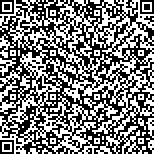| 引用本文: | 李成峰,甄 毓,刘材材,秦 超,冯 明,王国善,米铁柱.东海原甲藻抗体的制备及酶联免疫检测方法的建立[J].海洋科学,2015,39(4):117-124. |
| |
|
| 本文已被:浏览 1828次 下载 2467次 |

码上扫一扫! |
|
|
| 东海原甲藻抗体的制备及酶联免疫检测方法的建立 |
|
李成峰1,2,3, 甄 毓1,2, 刘材材4, 秦 超5, 冯 明6, 王国善7, 米铁柱1,2
|
|
1.中国海洋大学 环境科学与工程学院;2.海洋环境与生态教育部重点实验室;3.国家海洋局 东海环境监测中心;4.国家海洋局 东海环境监测中;5.东华大学 化学化工与生物工程学院;6.上海英基生物科技有限公司;7.中国海洋大学 海洋生命学院
|
|
| 摘要: |
| 通过制备针对东海原甲藻细胞破碎物的多克隆和单克隆抗体, 建立了基于双抗体酶联免疫分析定量检测东海原甲藻(Prorocentrum donghaiense)的检测方法。利用该方法对单一藻种、混合藻种和现场样品中的东海原甲藻进行检测的结果与镜检结果相一致, 最低检测限度为1×103cells/mL。该方法的建立对中国近海赤潮暴发的实时监控具有重要意义 |
| 关键词: 东海原甲藻(Prorocentrum donghaiense) 抗体 酶联免疫检测 |
| DOI:10.11759/hykx2014061800 |
| 分类号: |
| 基金项目:国家高技术研究发展计划(863 计划)项目(2007AA092001-11);海洋公益性行业科研专项项目(201205031-02, 201105014-03) |
|
| Preparation of antibodies and development of an enzymelinked immunosorbent assay for detection of Prorocentrum donghaiense |
|
|
| Abstract: |
| Antibody-based methods are developed to detect planktonic microalgae both qualitatively and quantitatively recent years. Herein, we prepared both polyclonal and monoclonal antibodies against Prorocentrum donghaiense and then set up the method of double-antibody ELISA to quantitatively detect P. donghaiense. The specificity and validity of the double-antibody ELISA technique were evaluated with cultured pure strains, mixed strains and field samples, and by comparison with microscopy observations. The results showed that there was no significant difference between the two methods, and the minimum detection limit was 1×103 cells/mL. The double-antibody ELISA technique provides a convenient tool for rapid assessment of HAB species in marine environments, which has great significance for performance of a real-time monitoring on the outbreaks of harmful algal bloom in China coastal sea. |
| Key words: Prorocentrum donghaiense antibody Enzyme-Linked Immunosorbent Assay |
